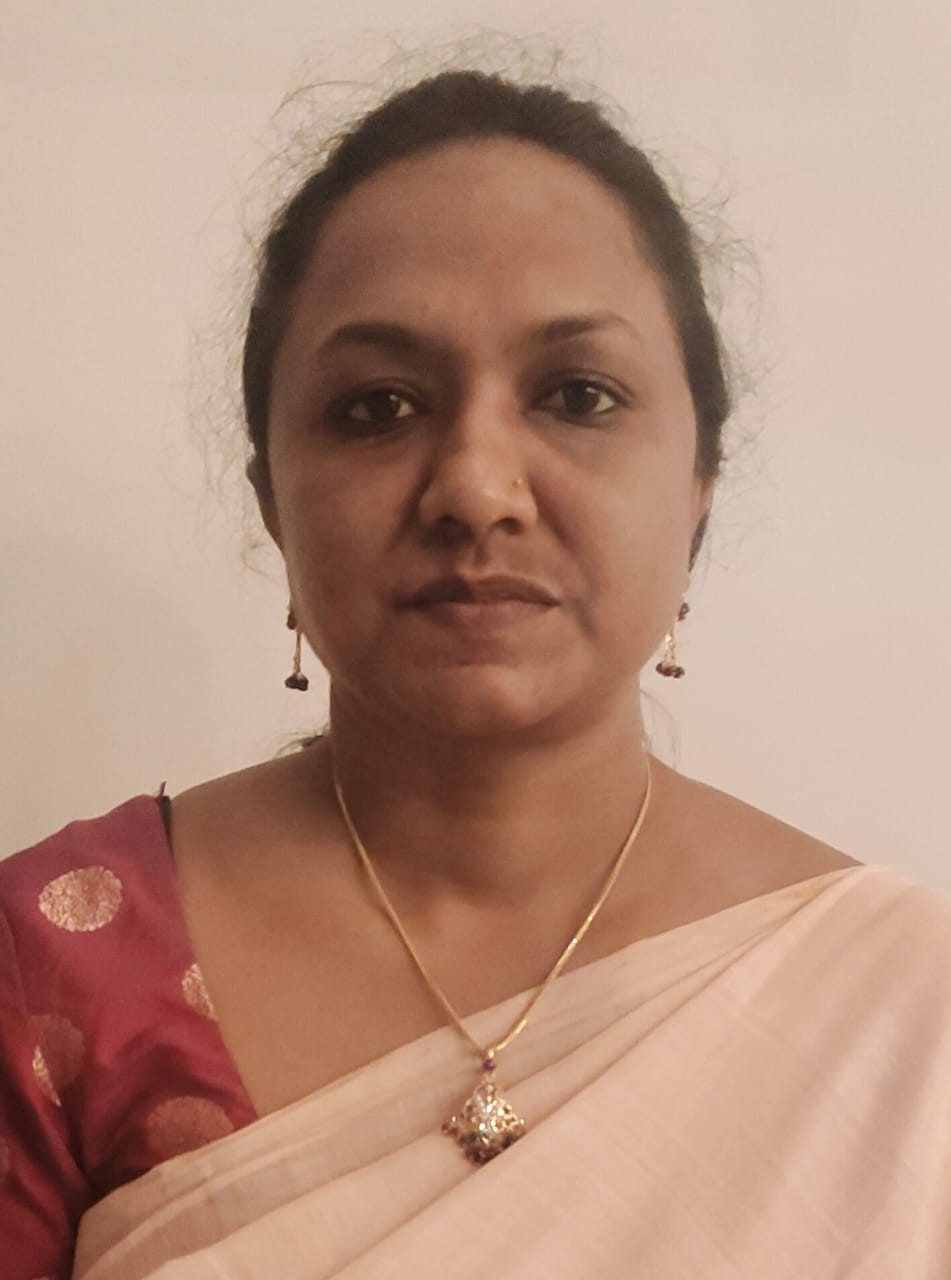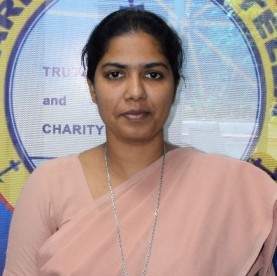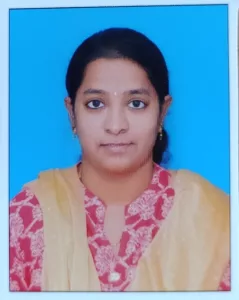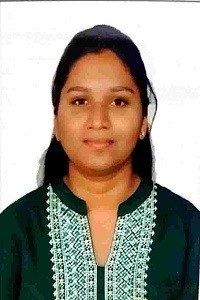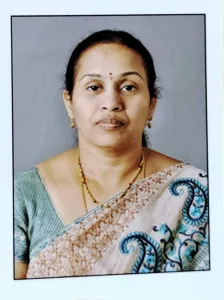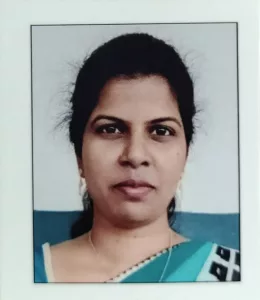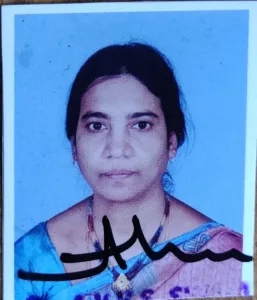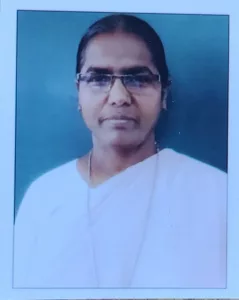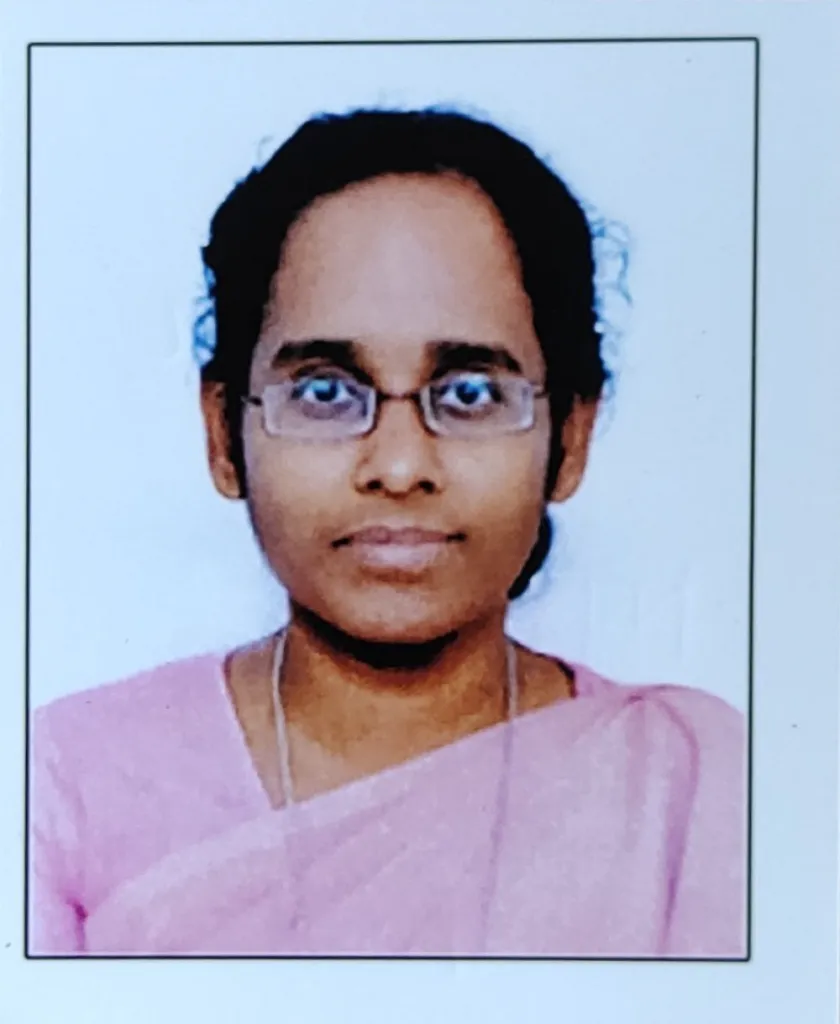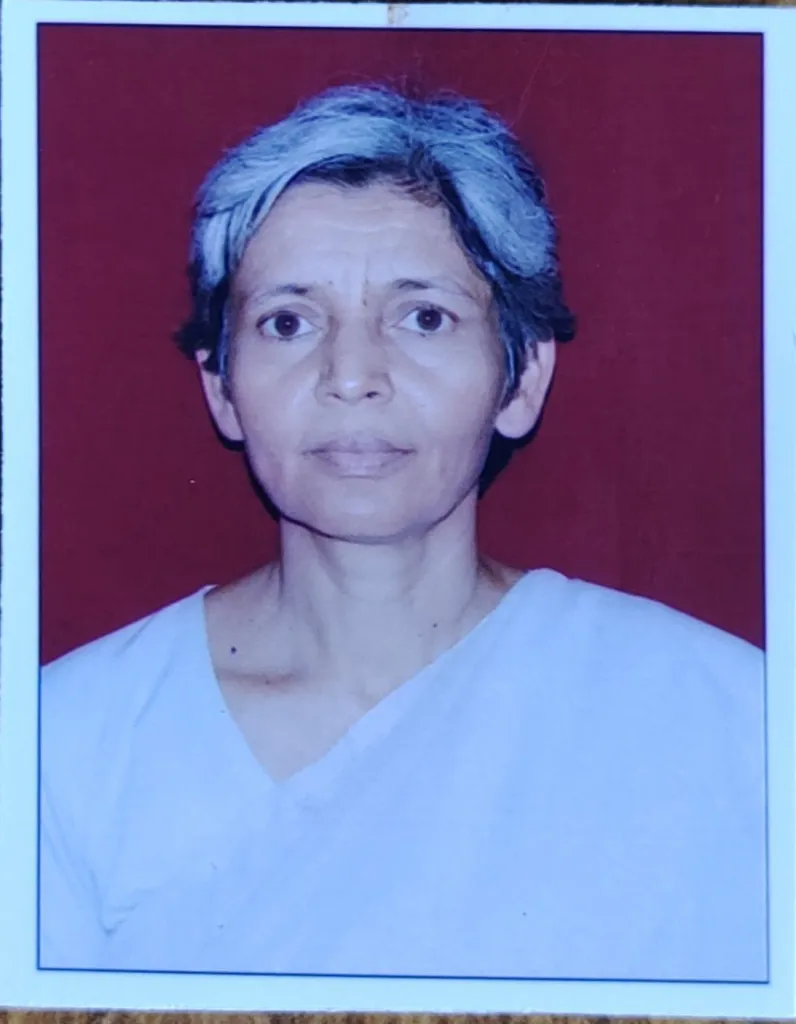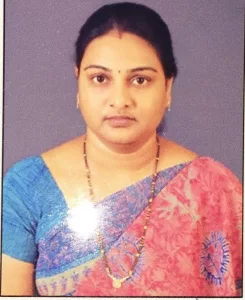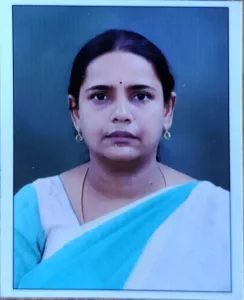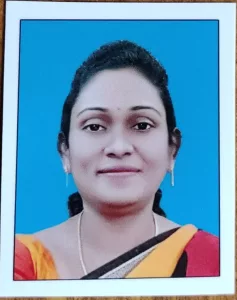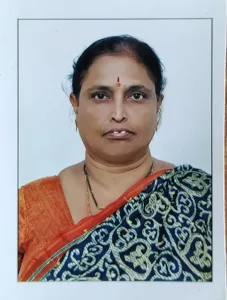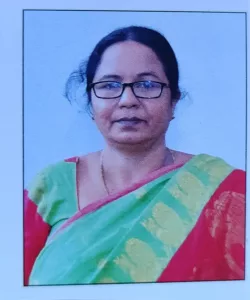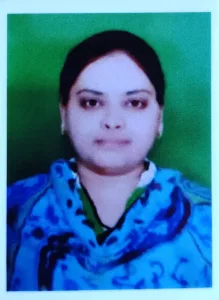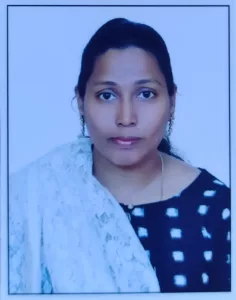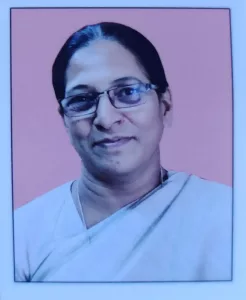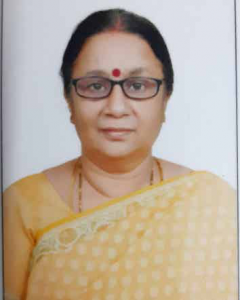1) DIGITAL POLICY
Technological advancements have an impact throughout the world on the everyday lives of citizens, on how societies are developing, on the skills and competences required to take part in society and most importantly, on how to access knowledge and information. Although the transformations are taking place in different ways, at different paces, and with different means and opportunities, one common factor to higher education institutions is that they are all confronted with the question of how to adapt and shape higher education in an increasingly digital world.
The aim of digital transformation is to advance and improve the quality and relevance of higher education. This institutional policy statement spells out the principles and values that shall underpin the transformational process from the current state to a digitalized state, making every effort to shape an inclusive, ethical and purpose-based digital transformation. We have also ensured that the highlights of our policy are in tune with the National Education Policy 2020.
The institution recognizes some of the major barriers to digital transformation as:
- The human factor: Institutional culture is not changing at the same pace as technological developments. To address this issue, the institution will provide strong leadership support while ensuring that the different stakeholders, faculty, staff and students take part in the process and take ownership of the process. The leadership will motivate and mobilize the institution and combine it with capacity-building of faculty and staff in relation to their different type of task and mission. If needed, a specific unit will be created to drive digital transformation forward.
- Financial investments: The institution recognizes that it is not enough to have the basic infrastructure in place and then be able to leverage the potential. The more access we have to basic infrastructure the more investment is required to further develop the potential of technology. Effort will be made to find the financial investment required to put in place new infrastructure to meet technological advancement.
- Inequalities: Though technology is only a means to an end, it is an essential means to access information, data and knowledge. Knowledge is fundamental to the politics, economy and culture of modern society. It is essential for the individuals to take informed decisions in life. When technology is not available equally to all, it leads, inevitably, to different and unequal opportunities, serving to deepen the digital divide. The institution will play its part in building a knowledge society, at the same time, attempting to bridge the divide.
- Ethical aspects: Online management of information and data also implies new ways of analysing and making use of data. Use of technology in attendance and admissions are only changes carried out to do the same thing with more efficiency through improved procedures and management. But to address ethical questions on the right to data privacy, the institution will formulate a code of conduct to ensure that stakeholders involved are informed and made aware of how data collected is to be used, thus creating a transparent and safe environment for data management.
2) IT POLICY
The college IT Policy seeks to maintain, secure and ensure the legal and appropriate use of Information Technology infrastructure established by the institution on the campus. This policy establishes college-wide strategies and responsibilities for protecting the confidentiality, integrity and availability of the Information assets that are accessed, created and managed by the institution. These include data, information systems, computers, network devices, intellectual property, as well as written or verbally communicated information.
Realizing the importance of internet and intranet services, the college established basic network infrastructure in the first decade of the millennium and has been upgrading services regularly. This document attempts to educate the college community on the rights and responsibilities of using the IT resources of the college by laying down the broad guidelines for the appropriate use of the IT facilities available in the context of the college.
The policies enunciated here shall be revisited periodically as the IT sector is a rapidly changing field.
Purpose
The college is committed to providing integrated and comprehensive technologies to enhance teaching learning and improve productivity and support internal and external communication and collaboration in alignment with the vision and mission of the institution.
Hence, it gives access to faculty, students and staff to a wide range of computing resources, digital information and communication networks basic to the academic, research and administrative functions of the college.
Appropriate Use of IT
The academic community must:
- Honour intellectual property, the privacy of data, and the rights of others.
- Adhere to copyright laws and guidelines. The same rules of print media apply to digital resources.
- Respect license agreements regarding the copying and use of computer software, library online databases and files such as text, audio, videos, and graphics.
Inappropriate Use of IT
The following actions would be viewed as misuse of IT resources:
- Using a false identity to access a computer system
- Infringement of copyright
- Downloading or storing pirated material
- e-mail harassment, hoaxes
- Intentionally access, create, store or transmit pornographic material
- Damaging a system by introducing a worm, virus or spyware
- Unauthorized attempts to alter data files or systems
- Any action compromising the integrity or security of computer, network, website or email systems
- Use of technology to impersonate another individual, or for personal financial gain
- Sharing individual or organizational authorizations and passwords
- Damaging or removal of software, hardware, or any activity in violation of government rules or college policy.
Security
All computers connected to the institution’s network shall be protected with up-to-date anti-virus software and the latest operating system security fixes installed. The IT department will take care of the institution-owned systems. Individuals must take similar action with personally owned computers using the institution’s network. The IT department will make known the minimum security requirement for personal computers.
Individuals are responsible for protecting their passwords for access to college resources. They must not divulge their password to anyone other than the IT Department.
Privacy & Confidentiality
The college owns and maintains the computers and communication systems used by its faculty, staff and students. It has the right and responsibility to periodically access files to service and repair these systems and to ensure that college policies and applicable laws are observed.
The IT Department manages remotely all college-owned computers from a centralized management console. In general, information stored on these computers will be considered confidential and to be shared with specific individuals/groups for academic/administrative purposes.
Email is a facility provided for the efficient functioning of academic and administrative work. All academics, staff, and students are given institutional G-Suite accounts. It is mandatory for faculty and students to use these G-Suite accounts for all academic and institutional purposes.
Wi-Fi
Wi-Fi policy’s primary goal is to offer sufficient security and privacy protections for data exchanged over all wireless networks. To find intrusions by illegal wireless devices, wireless networks must be watched over. The College IT services must examine and approve any exception, modification, or deviation from this policy.
Physical access to Wireless Access Points (WAPs) shall be restricted. WAPs shall be monitored by College IT services. Alerts shall be generated when devices become unresponsive due to power outages or theft or when rogue WAPs are connected. All wireless infrastructure devices (WAPs, wireless controllers and wireless monitoring tools) shall be configured by College IT services or their authorized representative before connecting to the physical network.
Cyber Security
Data and IT infrastructure are protected by the institution’s cyber security policy. Anyone who may have access to the systems, software, and hardware of the institution, including employees, students, and others, is subject to the terms of this policy.
The College data may be in danger if a user logs into any institutional account using a personal device, such as a laptop, tablet, or phone. The College does not advise using personal devices to access any institutional data. Employees are required to keep their gadgets in a secure location that is not accessible to others if this is unavoidable.
Recommendations
- Keep the passwords for all electronic devices safe and secure.
- Only secure networks should be used to log into institutional accounts.
- Install security updates frequently.
- Update antivirus software regularly.
- Never leave your devices exposed and unprotected.
- When you leave your workplace, lock your computers.
- Never trade credentials without the authorised person’s request or approval.
- Change your passwords annually.
- When an attachment’s content is unclear, avoid opening it and avoid clicking any links.
3) E-LEARNING POLICY
The institution will use ICT as one of a range of strategies for engaging and enabling students to be successful learners and communicators. We value the potential of ICT to support students’ learning in new and complex ways, particularly its ability to deliver personalized learning, and see it as a valuable addition to our pedagogy.
- Access: Access will be provided to pedagogical innovations using technology to make a positive impact on student learning outcomes.
- Inclusion: All students will have access to quality e-learning opportunities in their classroom.
- Faculty training: There will be accompanying professional learning for teachers to ensure delivery of quality teaching. Skill development sessions for teachers will be provided both formally and informally.
- Technology integration in teaching, learning and evaluation: Technologies will be used appropriately in all programmes to enhance and support teaching, learning and evaluation.
- Optimized use of digital platforms: Digital platforms such as SWAYAM and ongoing ICT based education initiatives will be used for providing quality education, accessible to anyone, anytime and anywhere.
- Government of India initiatives such as National Digital Library of India (NDL India), e-Shodh Sindhu and National Academic Repository (NAD) will be given publicity among faculty and students to encourage use of these resources.
- Legal use of software will be followed and maintained and students made aware of appropriate use.
- All parents/ guardians and students are required to sign a Student Code of Conduct document pertaining to e-learning.
- Blended learning: E-learning tools will be an integral, but not exclusive part of learning in the classroom.
- Responsible use of e-learning technologies: Students will be made aware of responsible use of e-learning technologies, cyber bullying and safety practices.
- Courses that can meet the needs of life-long learners and curricula based course content covering diverse disciplines will be created.
- Student privacy: To protect student privacy, the teacher can restrict access to the course site so that outsiders cannot see the resources that reside there, including students’ discussion responses, for example. Students’ privacy rights are violated when they are required to post photographs and other personal information on a course site, as in introduction/ice-breaker activities. Such activities should be voluntary, not mandatory. Also, references to personal details such as religion, caste, disabilities should be made public only with the student’s permission. If a teacher plans to publicize students’ work inside or outside of the course site—including, for example, their words in electronic discussions, e-mail, or assignments—their permission to do so must be sought.
- A discussion policy will be established by each course teacher containing guidelines governing the students’ participation in chats and forums, including the degree to which the teacher herself/ himself will enter into student discussions.
If student participation in electronic discussions is required, this should also be clearly stated in the discussion policy. Furthermore, if the teacher is planning to grade students on their participation in discussions, the policy should clearly indicate what grading criteria apply in posted instructions for that particular discussion.
- Intellectual property rights: Students should be made aware of intellectual property rights and the course site should contain a statement that the course resources—together with the announcements posted and the words used in electronic discussions—belong to the course teacher and/or the university, not to students who might wish to use them. The statement should make clear that course materials are for class purposes only and cannot be distributed to others without violating the intellectual property rights and/or the privacy rights of the owners of these materials, whether the course teacher, students in the course, or those who created outside sources of information.
- Plagiarism: Copying and pasting information from the Internet for assignments/papers without citing the source is plagiarism and engaging in it will result in serious action in conformity with the policies of the institution regarding plagiarism. It could lead to suspension/expulsion from the course or in extreme cases, from the institution.
- Technical difficulties students face should be reported to the course teacher who will, in turn, refer the matter to the IT Team, through the Vice-Principals. Students should not expect help for certain kinds of problems: problems related to computers that students use off campus are typically their own responsibility.
- The e-learning policy will be re-visited every quarter for updation as this is an evolving field.
4) GREEN POLICY
Maris Stella College is committed to conducting its operations and activities in an environmentally responsible and sustainable manner, to create and sustain an eco-friendly campus with clear-cut goals and priorities in the management of water resources, energy sources and consumption, air quality, preservation of flora and fauna, conservation of the ecosystem and productive use of the land within its boundaries. It seeks to conserve resources and preserve the environment by harnessing the sun, catching the rain, providing green cover and managing and restoring from waste.
The institution recognizes that reducing and, where possible, eliminating the environmental impacts of our activities is an important part of our mission. We will strive to achieve environmental excellence through campaigns and policies aimed at creating awareness among stakeholders towards a clean and green consciousness by involving them in programmes, discussions and debates.
We strive to be a leader among educational institutions and will work with our staff and students and other external entities to establish and follow principles, in conjunction with National Environmental Policies.
Our guiding principles and practices to achieve resource conservation, waste reduction, and sustainability overall are summarized below:
- Conserve energy and other natural resources
- Encourage employees to use public transport/ environment-friendly modes of travel
- Reduce, reuse, and recycle to reduce waste
- Minimize the production of hazardous waste
- Adopt green procurement practices
- Ensure staff and students complete the environmental awareness training
- Continue to review and minimize the impacts of our activities
Responsibilities
a) Energy Conservation :
- Turn off lights when not in use and use natural light when possible.
- Turn off all computers, terminals, speakers and other office equipment at the end of every work day.
- Activate the power down features on the computer and monitor to enter into a low-power or sleep mode when not in use.
- Unplug equipment that drains energy even when not in use (e.g., cell phone chargers, fans, desktop printers).
- Use LED lighting wherever possible.
- Utilize videoconferencing and conference calls as an alternative to travel when possible.
- Limit the use of air conditioners.
b) Reduce Materials Consumption :
- Avoid using paper by distributing and storing documents electronically.
- Print and photocopy only what is needed and double side the printing when possible.
- Use the back side of old documents for faxes, scrap paper, or drafts.
c) Reduce Fossil Fuel Consumption and Air Pollution
- Use public transport or other alternative forms of transportation, whenever possible.
- Use vehicle pools, when possible, over single use vehicles.
- Work remotely, when possible.
d) Minimize Waste and Increase Recycling
- Use durable reusable beverage containers, plates, and utensils.
- Print documents in black and white or grayscale whenever possible.
- Recycle paper, paper products, plastic, binders, folders, catalogues, boxes, bottles, cans, batteries, electronics, toner and ink cartridges.
- Sell e-waste to authorized buyers for recycling.
e) Minimize Toxics and Hazardous Waste
- Refrain from pouring toxic or hazardous substances down the drain.
- Reduce the use of toxic chemicals and use less toxic alternatives wherever possible.
- Design experiments, when possible, to use less toxic or hazardous substances.
- Purchase chemicals in the smallest quantities needed to avoid over-ordering.
- Dispose of hazardous chemicals appropriately and in accordance with safety requirements.
f) Protect and Improve Biodiversity
- Maintain and improve the habitat and biodiversity in and around the campus.
- Care for water bodies on the campus and those nearby.
g) Commitment to Green Purchasing
- Adopt green and sustainable procurement practices while purchasing material and services, to reduce the environmental impact.
5) RECRUITMENT & PROMOTION POLICY
Recruitment Procedure
The recruitment policy of Maris Stella reinforces the College’s commitment to recruiting and retaining talented individuals to uphold its academic and administrative standards while respecting the rights granted under Article 30(1) of the Constitution of India to minority institutions.
Objective
This policy of Maris Stella aims to ensure a transparent, merit-based, and inclusive process to recruit qualified and competent staff to achieve academic excellence and maintain the institution’s commitment to quality education. This policy applies to the recruitment of teaching and non-teaching staff at Maris Stella in compliance with UGC/AICTE/University/State Government norms and institutional requirements.
Recruitment Principles
- Uphold the constitutional rights of the minority institution.
- Ensure fair, open, transparent and merit-based recruitment.
- Foster diversity, inclusion, and alignment with the institution’s mission and values.
Eligibility Criteria
- Candidates are evaluated based on qualifications, merit, experience, and competency.
- The institution is committed to providing equal opportunities without discrimination on the basis of caste, religion, gender, or disability.
- All recruitments adhere to the minimum qualifications prescribed by the UGC/AICTE.
- As per UGC regulations, teaching staff must fulfill the minimum eligibility norms, including academic qualifications, NET/SET/SLET, or a PhD as per the latest UGC norms.
- Non-Teaching staff candidates should meet the qualifications and skillsets specified in the job description.
Recruitment Process
Heads of Departments, administrative office and college management evaluate staffing needs based on student strength, academic workload, and course requirements annually. Proposals for recruitment are submitted to the Principal for approval. Vacancies are advertised in prominent newspapers and institutional websites to ensure wide reach. Advertisements include details of eligibility, required qualifications, and application deadlines. Applications are screened by a duly constituted Screening Committee to shortlist eligible candidates based on qualifications and experience. Employees recruited on ad hoc basis, shall go through an interview by the selection committee after ensuring there is a vacancy
Selection Committee
A Selection Committee is constituted by the Principal as per UGC/AICTE guidelines to screen candidates applying for a particular post – teaching, non-teaching or contingent, within the institution. The selection committee includes the Secretary/Correspondent of the Society, the Principal, Vice-Principal, the Head of the Department, Subject Expert, and Administrative Representative.
Interview Process
The Selection Committee oversees the interview process. Shortlisted candidates are invited for an interview, which includes a teaching demonstration (for faculty positions) and personal interviews to assess competency, subject knowledge, communication skills and suitability for the role.
Selected candidates are issued an appointment letter specifying terms of employment, probation, and salary. Approval is sought from the Governing Body of the College. The College follows the reservation policy prescribed by the Government of India and UGC guidelines for SC, ST, OBC, EWS, and PwD categories. Verification of qualifications, experience, and documents is mandatory before final appointment.
Appointment
- All the selected candidates are required to submit their original certificates to the Principal at the time of joining duty.
- Any discrepancy in the data or information given results in the termination of the appointment.
- The selected candidates, on accepting the appointment order, enter into an agreement with the institution and a copy shall be preserved in the office.
- The selected candidates are asked to fall in line with the rules of service and sign an agreement to that effect.
- The new recruits are also asked to submit their identity proofs such as Aadhar Card/ Passport/ PAN Cards along with the original certificates.
Probation
Appointed staff undergo a probation period as per institutional rules. During the probationary period, the employee is not entitled to any increment. Performance during probation is evaluated before confirmation of employment. An appraisal or feedback shall be taken at the end of the academic year and on successful completion of the period of probation the Management continues the services of the employees and sanction an annual increment. The institution ensures compliance with UGC/AICTE norms for the recruitment of permanent, temporary, or guest faculty.
This policy is reviewed periodically to align with changes in UGC/AICTE regulations or institutional requirements.
PROMOTION POLICY
The Promotion Policy of Maris Stella ensures career progression for employees, aligning with the institution’s goals and regulatory compliance.
Objective
This policy of the College is designed to recognize and reward the academic, professional, and administrative contributions of its staff. The policy ensures a fair, transparent, and merit-based process for the promotion of teaching and non-teaching staff in alignment with UGC/AICTE University/State Government norms. This policy applies to all unaided teaching and non-teaching staff at Maris Stella College.
Promotion Principles
- Promotions are based on qualifications, demonstrated merit, experience, and performance.
- A well-documented and transparent process is followed.
- UGC/AICTE/University/State Government guidelines are strictly adhered to.
- All eligible staff have an equal opportunity for promotion without discrimination.
Eligibility Criteria
Teaching Staff:
Promotions are governed by UGC’s Career Advancement Scheme (CAS).
Assistant Professor to Associate Professor:
- Minimum PhD qualification.
- Completion of 6 years as Assistant Professor with a PhD or 10 years without a PhD
- Evidence of research work, publications, and participation in Faculty Development Programs (FDPs).
- Compliance with Academic Performance Indicators (API) requirements.
Associate Professor to Professor:
- Minimum PhD qualification.
- Completion of 3 years as Associate Professor.
- Significant contributions to research, publications, and curriculum development.
- Leadership roles in academic or institutional committees.
Professor to Senior Positions:
- Experience in leadership roles like Head of Department, Dean, or Principal.
- Outstanding research output, innovative teaching, and contributions to institutional development.
Non–Teaching Staff:
- Promotion is based on years of service, performance evaluations, completion of requisite training programmes, and skill enhancement as per institutional norms.
- Recommendations by the administrative office are required.
Promotion Process
Staff submit applications for promotion to the Principal.
- The eligibility criteria, including qualifications, experience, and API scores, are reviewed.
- A Screening Committee constituted as per UGC/AICTE norms which includes subject experts, senior faculty, and institutional representatives oversees the performance appraisal of the staff.
- Teaching staff are evaluated on Academic Performance Indicators (API), student feedback and teaching innovations, research contributions (papers, projects, and guidance).
- Non-teaching staff are evaluated based on annual performance appraisals, skillset improvements and training.
- Eligible candidates may be required to appear before a Promotion Committee for an interview or presentation of their work.
- The Promotion Committee recommends eligible candidates to the Management.
- Approved candidates receive a formal promotion letter.
The college adheres to Government of India and UGC reservation policies in promotions for SC, ST, OBC, EWS, and PwD categories.
Higher academic positions, pay scales, and more duties and responsibilities are among the advantages of promotion for teaching staff, while non-teaching staff members get improved pay, designations and opportunities for further skill enhancement. Staff members may approach the Grievance Redressal Cell for any disputes or appeals related to promotions.
The Promotion Policy is reviewed periodically to incorporate changes in UGC/AICTE or institutional needs.
6) ADMISSION POLICY
The admission policy of the college is guided by the norms applicable to minority institutions and the government rules for admission to women from reserved categories.
Central to the admission policy of the institution and in line with its vision and mission, is the provision of equal opportunities to all students. Though the general criterion for admission is merit, as a Catholic Minority Institution, special consideration shall be given to Catholics.
The college is also committed to the uplift of the socio-economically challenged and the differently abled. Hence some allowances shall be made in the case of applicants from these sections.
The College shall grant preferential admission to outstanding achievers in sports/cultural activities/other extracurricular fields, on a case to case basis.
The Admission Committee, through a transparent process, shall scrutinize applications and select candidates as well as prepare and display merit list of the candidates and communicate the same to the students.
The college shall publicize its programmes and strengths on its website, through posters and the media to reach potential students and to facilitate the exercise of choices.
The parents shall take direct responsibility for monitoring the welfare and progress of their ward after admission. They may depute a duly authorized guardian to take responsibility for their ward only on grounds acceptable to the college.
As per the Madras High Court judgment dated 2014, educational institutions administered by minority groups need not follow reservation for BCs and SC/STs for admission in both aided and unaided courses.
7) GRIEVANCE REDRESSAL POLICY
The Grievance Redressal Policy is to provide staff and students with a framework for the settlement of individual as well as collective grievances. A Grievance Redressal mechanism is in place to receive, examine and redress grievances speedily.
All grievances are directed to the Grievance and Redressal Cell. The cell aims to look into the complaints lodged by staff or students and redress it as needed and thus promote and maintain a conducive and unprejudiced environment for its stakeholders. It attends to the grievances and complaints registered by anyone with regard to the activities of the institution, and in particular, those made by students. On receiving a grievance, the cell initiates the grievance procedure in accordance with the rules and regulations of the college and ensures an effective and fair solution to the grievance.
The cell meets periodically, examines the nature and pattern of the grievances and redresses it accordingly. If the grievance requires immediate attention, the cell calls for a meeting to address the specific complaint on an emergency basis.
Objectives
- To develop an organizational framework to resolve grievances of the students and other stakeholders.
- To ensure effective solution to the stakeholders’ grievances with an impartial and fair approach.
- To investigate the reason for dissatisfaction.
- To enlighten the students on their duties and responsibilities.
Composition
- Principal: Chairperson
- Vice-Principals
- Dean, Planning & Communication
- Deans, Student Affairs
- Three senior faculty members (One from each stream)
Functions:
- Provides information about the cell’s objectives and mode of operation through the website and handbook.
- Informs students of the process for registering of grievances during the induction programmes.
- Acknowledges and analyzes grievances.
- Seeks a solution through a decision- making process.
- Reports the grievances and records how they were redressed.
The procedures are made known through the hand-book given to each student at the beginning of every academic year, and also in the Value Education and mentoring classes.
Procedures
The Grievance and Redressal Cell shall receive and redress grievances related to the following:
- Issues pertaining to teaching, learning and evaluation.
- Student- teacher, student- student grievances
- Grievances related to library and IT services.
- Grievances related to sports, cultural activities.
- Grievances related to behavior of stakeholders.
The grievances shall be redressed depending on their nature. Written and signed grievances may be forwarded through the mentors or by placing them in the Complaints Box provided on the campus.
Department level counselling is offered where the matter can be resolved. Grievances pertaining to academic and internal evaluation shall be redressed at faculty / HOD / CoE/ Principal level.
As soon as the application is received, the Redressal Cell shall review the complaint and invite both the parties for discussion. Further action is initiated, as per need.
The grievances are redressed speedily by issuing warning letters/memo/reformation/ remedies. Priority is given according to the urgency of the complaint. In all cases the complainant is informed of the measures taken. Checks in the system ensure there is no repetition of the same complaint.
Grievances regarding sexual harassment or ragging shall be dealt by the committees set up to deal with these issues as per the prescribed procedures.
8) RESOURCE MOBILIZATION POLICY
The Resource Mobilization Policy aims at achieving the goals and targets of the institution through optimal utilization of funds for the promotion of a learner-centric ecosystem. The policy focuses on:
- Activities to secure new and additional financial, human and material resources to support the achievement of strategic plans, goals and overall growth.
- Examination and assessment of the resources available for programme needs, policies, research, infrastructure upgradation and maintenance.
- Analysis of funding landscape, identification of potential resource support from stakeholders and agencies.
- Efficient budget allocation and maximization of internally generated income.
The college mobilizes and secures funding through the following agencies and strategies:
- Annual Autonomy Grant from the UGC.
- Grant-in-aid received from the state government towards the salary of aided staff.
- Fees from self-financing courses.
- Financial assistance from Management for infrastructure augmentation and equipment.
- Funds generated from college activities such as Christmas fete, sponsorship of academic activities such as seminars and workshops by private agencies, consultancy and certificate courses
- Optimum use of infrastructure by renting classrooms / buildings during weekends / vacation.
- Governmental and quasi-governmental funding to institutions, through schemes such as RUSA and from private agencies such as United Board for specific programmes.
- Contribution from philanthropists, retired staff, faculty and alumni for specific purposes such as endowments, scholarships, etc.
9) DISABLED FRIENDLY AND BARRIER FREE POLICY
Policy for Persons with Disabilities:
Right of Persons with Disabilities Act, 2016 prohibits discrimination against individuals with physical and mental disabilities. RTC is against all kinds of discrimination on any grounds including disability. RTC intend to advance a comprehensive and inclusive teaching and learning environment in which incapacitated students, or any employees are not distraught or treated unfavourably.
The College aims to design its programs, administrations, and activities accessible to the students. All the authorities of the College are striving in order to forward a helping hand towards the differently abled so as to make sure about the benefits of grounds programs, administrations, and activities. These guidelines apply to all the College faculty and staff.
Objectives of the Policy:
- To create an inclusive culture to avoid discrimination, exploitation and exclusion of disabled
students and staff from all spheres of work and education.
- To create a suitable regulatory mechanism for effective delivery of services to disabled students and staff
- To ensure implementation of all legislation with respect to persons with disabilities.
- To ensure full participation of persons with disabilities and to provide them with equal opportunities for development.
Curriculum development and implementation:
- Flexibility in attendance
- Offering multiple means of instruction to address a range of learning
- Offering a variety of pedagogical choices in each discipline for diverse learning styles and functional needs (e.g. lecture, team-based learning, problem-based learning, simulations, role-play, debate, service-learning etc.)
- Developing clear rubrics and grading
- Flexibility in good quality assessment and evaluation
- Availability of syllabus in various accessible formats as per the need of the student (digital copy, hard-copy, braille, large-print, images with verbal descriptions, appropriate color scheme )
- Include a list of reference material, reading material and textbooks that are available in accessible formats (eg. visual media with subtitles, digital material compatible with screen readers etc.)
Academic Buildings and Learning Spaces – Classrooms, Libraries, Laboratories, Hostel and other learning environments
- Provision of ramps, wheelchairs, lifts, accessible toilets/washrooms
- The female toilets have bins to collect used sanitary napkins and incineration facilities.
- Accessible signage in the campus/buildings
Inclusive Campus Life
- The right to access and participate in
- The ability to learn and the right to exercise their voice, choice and control in managing their own educational
- The right to develop to their fullest potential and to be active valued citizens in the
- The right to an appropriate and adequate allocation of resources to enable their right to access and participate meaningfully in education.
- The right to be safe-physically, emotionally, culturally and socially and to be treated respectfully.
10) RESEARCH POLICY
As an autonomous institution of higher education, Maris Stella College is inspired by a vision of excellence to contribute to organization and society through research. An institution progresses when creation, diffusion and extension of knowledge is considered as a mission.
Objectives:
- To promote research, innovation and intellectual
- To ensure integrity, quality and ethics in
- To integrate teaching and research through translational and instructional
- To incentivize the generation of intellectual
The faculty gains knowledge and skills by active research carried out in their field of specialization and by disseminating the information to learners. The updates keep the inquiry based approach alive in both teachers and learners. The application of gained knowledge for helping society is the real outcome / success of any research. Research activity bestows peer recognition nationally and internationally for the faculty and they feel intellectually alive in an active research environment. The research policy of the institution was framed in 2006 when Acharya Nagarjuna University awarded guideship to two of our faculty members and granted Research Centers in English and Economics.
The salient features of the policy :
The institution shall take up infrastructural enhancement in terms of books, E Resources, lab equipment and procurements for computational and other facilities.
- The college shall encourage faculty to take up research by providing incentives, sanctioning leave if research work demands survey or field work, granting OD and flexibility to pursue research related work. Rs.5000 at the time of registration / submission and Rs.3000 per month after award of D. shall be given as increment to un- aided staff.
- Management shall encourage faculty to take up D. or M. Phil on FIP basis or to take up part-time research.
- Access to research journals and E resources to be arranged by library and information
- Faculty shall be encouraged and guided to participate in and organize conferences/seminars to become a part of the community of scholars at national and international
- Research Cell shall encourage students to take up mini and major projects to gain extra credits.
- The research center shall provide latest updates on conferences, hands on workshops, guidelines for writing research proposals, conferences available at local, national, and international level and funding opportunities
- The institution shall encourage socially relevant research and identification and focus on thrust areas based on the expertise available in the institution.
Code of Ethics in Research :
The college strives to preserve a climate of research, emphasizing creativity, innovation and productivity with high ethical standards. The institution encourages and directs its members – teaching faculty, students, as well as administrative staff to abide by the highest standards of integrity, accountability and responsibility in academic research.
The code of ethics in research sets forth the general principles to ensure quality and rigor in research, while eliminating misconduct. The faculty and students shall adhere to the following guidelines for maintaining integrity and ensuring ethical practices in research:
- The research shall reflect core values like Quest for Excellence, Scientific Advancement, Value System, Women Empowerment, Entrepreneurship Development, Global Competencies and Nation Building.
- All research activities shall be conducted within the appropriate ethical, legal and professional frameworks, obligations and Professional and scholarly integrity shall be maintained at every level of research.
- The research shall focus on contemporary and novel issues leading to promotion and sustenance of quality education. Researchers shall consider the potential consequences of their research and research findings for the wider society.
- Researchers shall be open to collaborative work with investigators having different/ complementary skills within the institution or elsewhere.
- Researchers shall work together to strengthen the integrity of research and to review the progress of research regularly, in a transparent manner and with a sense of commitment.
- To apply for sponsorship from government or industry, researchers shall inform and obtain prior permission from the Head of the Institution. They should submit progress and final research reports to the sponsors as well as to the institution at times specified in the project award. Transparency and accountability in the use of consumables, non-consumables and disbursement of finances should be adhered to by the researcher.
- Research conducted shall protect the rights, dignity, health, safety and privacy of research participants. Research protocols involving human/ animal subjects must ensure that all the state regulations and policies are being followed. They shall respect cultural, individual, and role differences among research participants and consumers, including those based on age, sex, nationality, language, or socio- economic status.
- Researchers have the ethical responsibility to use the data collected only for the stated research purposes. They should not disclose personal information or the identity of participants in written or oral reports and discussions.
- Researchers should acquaint themselves with the relevant quantitative methods available for processing data (graphs, photo- images, tables), error analysis and tests for reliability.
- Research data obtained in studies performed in the college should be published or presented with acknowledgement to the institution. If there is any possibility that a copyright or patent application might emerge from the project, the researcher should file an Invention Disclosure with the Head of the Institution.
- The researchers should cite clearly all sources of information and data that is used. The works of others should be cited or given credit, whether published or unpublished, whether referring to a written work, an oral presentation, or material on a websiteResearchers should restrain from plagiarism. They should not publish the same article/ abstract in two different places. They shall grant and limit authorship strictly to those who made a significant contribution to the research. The names listed as co-authors should reflect the relative contributions of various participants in the research and should be published only after all listed authors have approved the submitted version of the manuscript.
- The researchers should cite clearly all sources of information and data that is used. The works of others should be cited or given credit, whether published or unpublished, whether referring to a written work, an oral presentation, or material on a website.
11) LEAVE POLICY
- Lecturers need to give proper reason for taking leave.
- Leave letters are to be submitted on time.
- Use the printed causal leave form available with the Office Superintendent.
- Leave letter is to be submitted to the Principal in person duly signed by the HOD and then submit the same to the office. Work needs to be adjusted and the same is to be submitted to the HOD and to the Principal.
- Number of causal leaves a staff member could avail is one leave per month. More than one leave a month, leads to loss of pay.
- In case of casual leave or on duty, address to the Principal and other types of leave to the Correspondent through the Principal.
- While going out during the college hours, the lecturers need to inform the HoD, Vice-Principal and must sign in the movement register kept in the Vice-Principal’s Office. One hour permission only needs to be written in the movement register, mentioning the out time and in time. More than 1 hour, Principal’s permission is required, more than 2 hours will be considered as leave.
- Faculty going out during college time (9 am to 4 pm – including lunch time) has to record the details in the gate register provided at the gate.
- Abide by the leave rules of the institution.
- Ensure that any teaching hour lost due to leave or any other exigency is compensated by filling in the leave hours, if any, of other faculty members of the same class.
Casual Leave
- All the unaided faculty are entitled to 12 days casual leave, i.e., one day per month.
- Casual leave for half-a-day can be granted to an employee either for the forenoon or afternoon session.
- Casual leave shall be taken either on prior permission or by informing on phone, through a letter to the HoD, administrative office and the Principal in circumstances not foreseen. In such cases the leave letter is to be submitted to the Principal within 24 hours.
- Three late comings are treated as equivalent to one day of casual leave.
Maternity Leave
- The unaided faculty shall be granted two months of paid maternity leave.
- Maternity leave with pay shall be granted only for two children.
Medical Leave
- An employee can avail medical leave only after consultation with the Principal.
12) CONSULTANCY POLICY
Maris Stella College aims to be an entrepreneurial organization by providing consultancy services to other organisations. The College recognizes the consultancy carried out by the faculty as a core and valuable part of its function as an autonomous institution and also as part of the ‘Knowledge Transfer’ in developing mutually beneficial relationships with commercial, public and other organisations. Therefore, the college has established its Consultancy Policy to support all staff in the delivery of approved consultancy.
This policy is projected to provide a clear framework for faculty who wish to take up consultancy, either through college or in personal capacity. Consultancy includes the work extended by a faculty member of the college in their field of expertise for external clients, for which payment is usually made. The faculty members should take prior approval from the Head of the Institution to extend consultancy work and maintain a proper record in this regard. Personal consultancy must be undertaken outside normal working hours of the college and should not hamper the regular teaching in the college. 40% of income generated from such consultancy shall go to the college and 60% to the individual faculty providing the consultancy.
The College reserves the right to impose rejection on any consultancy proposed by the faculty. Any income generated from consultancy approved by the college may be used to develop the academic/research facilities.
13) Policy for offering Certificate, Value-Added, Add-On Courses including MOOCs.
The objective of this policy is to provide a structured framework for the development, delivery, and assessment of certificate courses, value-added courses, add-on courses, and MOOCs delivered via platforms such as SWAYAM, NPTEL, EdX, and Coursera aimed at enhancing student learning, skill development, creativity and employability..
The policy covers all courses offered by the institution, including:
- Certificate courses developed and delivered internally by the institution.
- Infringement of copyright
- Certificate courses delivered by the institution in collaboration with industry and other professional organisations.
- Value-added courses developed and delivered by the institution to provide additional skills beyond the core curriculum.
- Add-on courses that extend a student’s academic knowledge by offering complementary and interdisciplinary / multidisciplinary skills.
- MOOCs from platforms like SWAYAM, NPTEL, EdX, and Coursera.
Course Development Guidelines:
(i) Courses developed internally must align with the institution’s vision and academic objectives. Course content shall aim to complement the core academic programmes, while adhering to the NSQF requirements and focusing on interdisciplinary learning, industry needs, and skill development. (ii) The proposals and the syllabi for institution-based certificate courses, value-added courses and add-on courses shall be submitted to the IQAC, which includes academic experts and industry professionals. These proposals will then be ratified in the Academic Council meeting following approval in the Boards of Studies meeting.
(iii) Value-added courses shall aim to enhance skills not covered in the core curriculum, like soft skills, digital literacy, and technical skills focusing on entrepreneurship, emerging technologies, or industry-relevant knowledge. These are open to all students across all disciplines and designed to foster employability, interdisciplinary learning, and innovation.
(iv) Add-on courses are comprehensive courses and shall be designed to supplement a student’s primary discipline with specialized skills. These courses shall focus on interdisciplinary areas, such as bioinformatics, financial management, data science etc. These courses which are offered alongside the main academic programme, provide extra credentials that can improve employability or prepare students for advanced studies. These courses can be multi-disciplinary and provide advanced competencies.
(v) Certificate courses must include at least 30 hours of instructional time, value-added courses must include 15-40 hours of instructional time depending on the scope and objectives, and add-on courses must include 40-60 hours of instructional time and offer a deeper exploration of specialized subjects.
(vi) APSCHE / AICTE / Krishna University approved MOOCs (SWAYAM, NPTEL, EdX, Coursera) shall be adopted by the institution after review by the IQAC and Academic Council and must align with the institution’s academic curriculum and be permitted for credit transfer or certification.
Course Delivery:
(i) Institution-based courses (Certificate, Value-added, and Add-on): These courses will be delivered in online, offline, or blended format. Course structure includes interactive learning components such as assignments, quizzes, case studies, field visits, group discussions, or projects. Faculty in-charge for these courses shall possess relevant expertise and teaching experience.
(ii) MOOCs: Students shall enroll directly for the courses via platforms SWAYAM, NPTEL, EdX, Coursera, and the institution offers supplementary support such as mentoring, and discussion sessions in completing these courses.
(iii) The institution will provide necessary infrastructure to support both online and offline delivery of certificate courses, value-added, and add-on courses.
(iv) Flexible delivery options include weekend, vacation, or evening schedules.
(v) Facilities such as learning management system (LMS), classrooms, computer labs, IT support and a high-speed internet will be available to students to facilitate both online and offline delivery of these courses.
(vi) Students enrolled in any programme at the institution can opt for these courses. Faculty and staff can also participate for up-skilling and professional development.
(vii) Students are permitted to enroll in and complete at least two certificate/value-added/add-on courses from the institution, as well as MOOCs offered by platforms such as SWAYAM, NPTEL, EdX, Coursera during any semester of the programme.
Assessment and Certification:
(i) Institution-based courses (Certificate, Value-added, and Add-on): Assessments for these courses include quizzes, assignments, projects, presentations, and final exams.
For certification, students must complete the course with at least 75% attendance and a minimum passing grade of 50%.
Certificates for successful completion will be awarded by the institution.
(ii) MOOCs: Evaluation and certification are governed by the respective platforms (SWAYAM, NPTEL, EdX, Coursera). Students must follow the assessment and certification process of the respective platform (SWAYAM, NPTEL, EdX, Coursera).
Upon successful completion, students must submit proof of certification to the institution for credit transfer or recognition.
(iii) The institution-based courses (Certificate, Value-added, and Add-on) are assigned credits in accordance with the UGC regulations. Extra credits awarded to students who pass the courses are shown in their individual marks sheets; however, they are not taken into account for determining SGPA and CGPA.
Credit Transfer and Recognition:
(i) Institution-based courses (Certificate, Value-added, and Add-on): The credits acquired by the student appear as additional credentials on academic transcripts.
(ii) SWAYAM/NPTEL: In accordance with UGC/AICTE regulations, credits earned through SWAYAM/NPTEL will be transferred to a student’s academic record.
(iii) EdX/Coursera: Credits from these platforms will be accepted upon review by the IQAC based on alignment with the institution’s curriculum.
Quality Assurance:
(i) The Deans of Academic Affairs and Student Affairs and the SPOC will oversee enrollment, participation, and completion responsibilities for all offered courses. Regular updates and reports will be submitted to the IQAC, CoE and the Academic Council for evaluation and continuous improvement.
(ii) The IQAC will regularly review all courses to ensure they meet the institution’s academic and skill development goals.
(iii) Continuous feedback will be collected from students, faculty, parents, alumnae, employers and industry partners to ensure course content remains relevant and up-to-date.
Fee Structure:
(i) Institution-based courses (Certificate & Value-added) will incur a nominal fee to cover instructional and administrative costs.
(ii) MOOCs will follow the respective platform’s fee structure, and financial aid will be offered to students where feasible.
(iii) Add-on courses will have a separate fee structure due to their comprehensive and specialized nature.
This policy may be amended by the IQAC based on new regulatory requirements, technological advancements, industry needs, and feedback from stakeholders.
14) SERVICE-LEARNING POLICY
Introduction
Maris Stella College introduced Service-Learning (S-L) in 2022 as an experiential learning approach that integrates academic study with meaningful community service. The initiative was initially supported through financial assistance from the United Board, enabling the college to establish and expand its S-L programmes. The college is committed to institutionalizing S-L as a key component of holistic education across all academic disciplines, fostering civic responsibility, and strengthening community partnerships. By embedding S-L into academics and research, the college aims to create socially responsible graduates who contribute meaningfully to society.
Objectives
- To integrate service-learning into the curriculum across disciplines.
- To provide students with experiential learning opportunities that address real-world community challenges.
- To develop students’ problem-solving, leadership, and teamwork skills while promoting social responsibility.
- To build sustainable partnerships with local communities and organizations.
- To document, assess, and publish S-L project outcomes in academic journals.
Scope & Implementation
S-L is embedded into undergraduate programmes, ensuring alignment with academic objectives. Faculty members integrate S-L components into coursework and mentor students in designing impactful projects. Community-based projects address social needs in collaboration with local organizations. The department shall pass the proposed S-L syllabus in the academic Board of Studies and maintain the minutes approved by the BoS for S-L. The S-L Committee oversees planning, implementation, and evaluation.
Certification & Academic Credit
Students participating in S-L projects receive certificates recognizing their contributions. Academic credit may be awarded for S-L courses, subject to institutional regulations. S-L hours are documented and considered for student evaluation and co-curricular achievements.
Research & Publications
Faculty and students are encouraged to document and analyze S-L experiences. The college facilitates the publication of S-L project reports and research papers in reputed journals. Capacity-building workshops, seminars, and FDPs are organized to promote research and knowledge-sharing on S-L practices.
Roles & Responsibilities
Students: Engage actively in S-L projects, uphold ethical standards, and document experiences for academic and research purposes.
Faculty: Integrate S-L into coursework, mentor students, and contribute to research and publication efforts.
Faculty shall integrate S-L approaches and activities in their respective courses to ensure the efficacy of S-L for learning outcomes and adopt appropriate learning evaluation strategies to assess the students. Faculty shall mentor the students in implementation of community activities by accompanying students. Collaboration with local governments and NGOs is essential to enhance S-L activities.
Community Partners: Collaborate with the college to identify needs, offer practical learning opportunities, and provide feedback.
Institution: Provide institutional support, allocate resources, and encourage interdisciplinary participation.
S-L Committee Functions
- Facilitate Service-Learning courses in all the undergraduate programmes.
- Organise capacity-building workshops, FDPs and provide training to faculty members and students to implement and develop S-L in the department.
- Periodically review the progress of S-L courses in various departments and suggest measures to strengthen them if necessary.
- Facilitate inter-institutional knowledge experiences to improve S-L practices.
- Collaborate with institutions and organisations to facilitate S-L activities.
Assessment & Evaluation
Student learning outcomes and community impact are evaluated through structured assessment methods. Feedback from students, faculty, and community partners informs programme improvements. Periodic reviews ensure S-L remains relevant and impactful.



